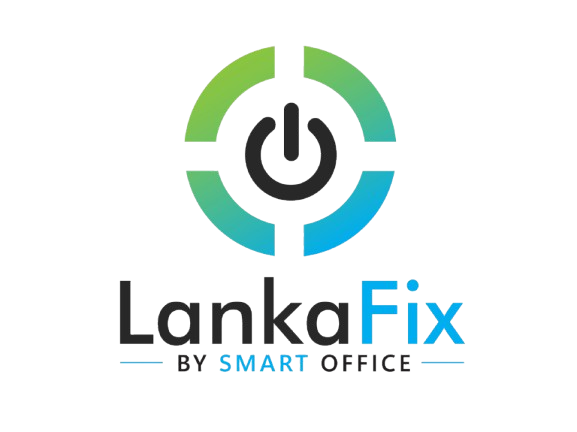
5G, the fifth generation of wireless technology, is poised to revolutionize the way businesses operate and transform the future of work. With its promise of ultra-fast internet speeds, low latency, and the ability to support massive numbers of connected devices, 5G has the potential to improve productivity, enable new remote work opportunities, and enhance digital collaboration. This article explores how 5G is set to shape the workplace, its potential applications, and the industries that will benefit the most.
1. Understanding 5G Technology
5G offers significant improvements over previous generations of wireless technology (4G LTE), particularly in terms of speed, latency, and connectivity. It can deliver speeds up to 100 times faster than 4G, with a latency as low as 1 millisecond. This makes 5G capable of handling more connected devices and enabling real-time data transmission, which is critical for many modern work environments.
Key Features of 5G:
- Faster Speeds: 5G networks can reach speeds of up to 10 Gbps, allowing for seamless streaming, data downloads, and cloud computing.
- Low Latency: With near-instantaneous communication, 5G is ideal for applications that require real-time responsiveness, such as remote surgeries or virtual reality (VR) conferencing.
- Massive Connectivity: 5G can support up to 1 million connected devices per square kilometer, enabling smart cities, the Internet of Things (IoT), and more connected office environments.
Source: GSMA Intelligence Report on 5G
2. The Impact of 5G on Remote and Hybrid Work
One of the most significant impacts of 5G will be on remote and hybrid work models, which have become increasingly popular in the wake of the COVID-19 pandemic. 5G will provide workers with faster, more reliable internet connections, enabling them to collaborate and communicate seamlessly, regardless of their location.
Key Benefits:
- Improved Video Conferencing: 5G will allow for ultra-high-definition video calls with zero lag, improving the quality of virtual meetings. This is crucial for remote workers who rely on Zoom, Microsoft Teams, or similar platforms.
- Mobile Workforce: 5G will enable employees to access cloud-based applications and company data from anywhere, empowering them to work on the go. With faster connections, remote workers can easily download large files, work with cloud-based software, and collaborate in real time.
- Real-Time Collaboration: 5G’s low latency will make it possible for teams to work together in real-time, even across different time zones. Virtual collaboration tools, such as virtual whiteboards or augmented reality (AR) interfaces, will become more interactive and efficient.
Example:
- Telecommuting Surge: As businesses adopt remote work practices, 5G will provide the infrastructure necessary for telecommuters to work efficiently, improving productivity and reducing the need for physical office space.
Source: Forbes: 5G and the Future of Remote Work
3. Enhancing the Use of Cloud Computing and AI
5G will play a critical role in accelerating the adoption of cloud computing and artificial intelligence (AI) across businesses. With faster data transfer rates and lower latency, companies can process large datasets more quickly, enhancing AI applications and optimizing cloud-based workflows.
Key Benefits:
- Faster Data Processing: AI-powered tools that rely on data analysis will benefit from 5G’s ability to process large amounts of data in real time. This will enhance business decision-making and allow for more accurate predictive analytics.
- Improved Cloud Applications: Cloud-based applications, such as Customer Relationship Management (CRM) software and project management tools, will become more efficient. Workers can access and update cloud apps with minimal delay, streamlining operations.
- Machine Learning: 5G will enable machine learning models to analyze and respond to data inputs in real time, improving everything from customer service chatbots to autonomous systems in logistics.
Example:
- AI in the Workplace: With 5G, businesses can adopt AI-driven tools for tasks like data analytics, customer support, and operational efficiency, boosting productivity and enabling automation across industries.
Source: McKinsey: How 5G Will Affect Industries
4. Revolutionizing Industries Through IoT and Automation
5G will drive the growth of the Internet of Things (IoT) and automation, enabling businesses to adopt smart systems that improve efficiency and reduce costs. From smart offices to automated factories, 5G will enable the next wave of industry innovation.
Key Applications:
- Smart Offices: IoT devices connected via 5G will allow businesses to create smart office environments that automatically adjust lighting, temperature, and security based on occupancy and real-time data.
- Automated Manufacturing: In industries such as manufacturing and logistics, 5G will enable real-time monitoring of machines and processes, allowing for predictive maintenance and automation on a larger scale.
- Supply Chain Optimization: 5G will enhance supply chain management by enabling real-time tracking of goods and resources, reducing bottlenecks, and improving efficiency.
Example:
- Smart Factories: Manufacturing companies can use 5G-powered IoT devices to monitor machinery, collect data, and predict maintenance needs before breakdowns occur, reducing downtime and increasing efficiency.
Source: PwC: 5G’s Role in Industrial Automation
5. Virtual and Augmented Reality in the Workplace
5G will bring virtual reality (VR) and augmented reality (AR) into the mainstream workplace, enhancing everything from training programs to customer experiences.
Key Applications:
- Training and Development: VR can be used to simulate real-world scenarios for employee training, while AR can provide on-the-job assistance by overlaying digital information onto the physical world. With 5G, these immersive technologies will be accessible in real-time, allowing for more interactive learning experiences.
- Virtual Workspaces: Businesses can use VR to create virtual office environments where employees can collaborate as if they were in the same physical space. This will be particularly useful for remote teams and global organizations.
Example:
- Retail Industry: Retailers can use AR to enhance customer experiences by allowing shoppers to virtually try on products or view how furniture will look in their homes before making a purchase.
Source: IDC: The Impact of 5G on Virtual and Augmented Reality
6. 5G’s Role in Business Continuity
5G will improve business continuity by providing reliable, fast internet connections that can handle peak usage times without slowing down. This will help businesses stay operational during crises, such as natural disasters or pandemics, by ensuring that employees can work remotely without disruption.
Key Benefits:
- Backup Connectivity: 5G can serve as a backup connection for businesses that rely on wired internet, ensuring continuous connectivity even during outages.
- Remote Infrastructure Management: IT teams can remotely manage company networks and systems using 5G, ensuring that any technical issues can be addressed in real-time, even during emergencies.
Example:
- Disaster Recovery: 5G networks can support remote workforces and ensure that businesses remain operational even in the face of natural disasters or network outages.
Source: World Economic Forum: 5G and the Future of Business
Conclusion
5G technology is set to revolutionize the future of work by enabling faster communication, supporting cloud-based and AI-driven solutions, and fostering innovation through IoT and automation. Businesses across all industries, from healthcare and manufacturing to retail and education, will benefit from 5G’s increased speed, lower latency, and improved connectivity. By embracing 5G, companies can stay competitive, enhance remote work capabilities, and drive productivity through cutting-edge technologies.
Sources:
- GSMA Intelligence: The Promise of 5G – https://www.gsma.com/
- Forbes: The Future of Remote Work with 5G – https://www.forbes.com/
- McKinsey: How 5G Will Transform Industries – https://www.mckinsey.com/
- PwC: 5G and Industrial Automation – https://www.pwc.com/
- IDC: The Impact of 5G on AR and VR – https://www.idc.com/
- World Economic Forum: 5G and Business Continuity – https://www.weforum.org/


1 Comment